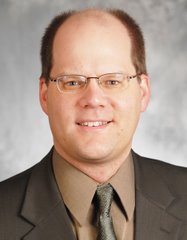Week of March 15, 2009
Budget update: As soon as I can post the info on our House budget targets I will do that. I've been out sick for a few days so I am behind!
Peer pressure for energy conservaton: WCCO recently did a report on a Connexus program on promoting energy conservation. Utilities are using some software that lets consumers know if they are using more energy on average than their neighbors. I've spoken to the head of the software company, and they integrate publicly available assessor data on square footage with the utility usage data and then they calculate the average energy use for similar types of homes in the same area. No consumer would know the consumption for their neighbors, which is not the impression you get from the title of the story. In California, this type of program led to a 2% reduction in energy usage. At first the utility out there used a "frowny face" for people who were above average in their energy use but it got some negative feedback on that!
Government Information: I just found this cool web site about government information in Minnesota. It is aptly named the Minnesota Coalition on Government Information. (I'm sure they spent many late nights working on the name.) The Coalition is "a network of individuals and organizations committed to open access to public information in print, electronic and digital forms." There are lots of tools for figuring out how to access public information. We rank dead last, by the way, in public disclosure of state contracts. My colleague, Rep. Ryan Winkler, is trying to remedy this with legislation.
Growth and Justice accountability report: Growth & Justiced has just released a report called Government with Accountability.
"The report outlines six essential principles that capture the essence of accountability in government and actions that can be taken to achieve better results from the vital public investments made through state and local governments. The principles, which were developed after study and consultation with some of the state’s leading authorities on public-sector management, are:
- Establish leadership commitment. Dedication to accountability must come from the top.
- Set long-term goals and priorities. Outcomes must be in clear and measurable terms and specify the indicators for making progress toward the goals.
- Strive for transparency, straight talk and open books. Government should open its books and provide the information in a way that citizens can understand.
- Maintain fiscal responsibly and fairness. Leaders should aim for revenue sufficiency required to provide stable, reliable services and programs.
- Focus on efficiency and effectiveness. Leaders must recognize the difference between the two and that efficiency is doing things right and effectiveness is doing the right things.
- Demand accountability for results. Consequences for meeting or failing to meet goals should be considered for government and public service providers and consideration should be given to transformational overhauls of public systems."
Schedule: Monday included a floor session, a caucus meeting, and a meeting of the Taxes Committee. (I had to miss the Taxes Committee due to a sick child.) Tuesday included a committee caucus meeting, a cable TV and podcast interview on paratransit, a Health Care & Human Services Policy (HCHS) Committee meeting, a public hearing about Green Acres legislation, and Environment & Natural Resources Policy Committee meeting. I also presented my bill about sharps disposal (e.g., used syringes), HF1372, in the Environment Committee and it passed to the floor without any big issues. I presented my two transportation bills for transit bonding and a transit council (HF1333 and HF1373) in the transportation committee about the same time and they passed to the Finance Committee. The environment and transportation meetings were at the same time so I was shuttling back and forth. This happens a lot in March as we approach policy committee deadlines. On Wednesday, I presented two bills in the Civil Justice Committee, including HF239 about homeowner warranties and HF403 about compost and bioplastics. They passed and HF239 goes to the floor and HF403 goes to Finance and then Environmental Finance. After that, I presented my bill on the manufactured housing relocation trust fund (HF356) to the Housing Committee that has been a product of much negotiation between the homeowners and the mobile home park owners. It was "held over" while we await a fiscal note. We then had a short floor session, a committee caucus meeting, a meeting of three of us from the suburbs with the Speaker, a meeting of the House DFL Caucus, and Environment & Natural Resources Policy Committee and HCHS Committee meetings that were meeting at the same time. On Thursday, I had two caucus meetings, a floor session where we considered four non-controversial bills, a committee caucus meeting, an HCHS Committee meeting, and an Environment & Natural Resources Policy Committee meeting. With the late meetings for the last three days I was at the Capitol for an average of 13 hours a day. Which would explain why on Friday I came down with some kind of virus and was at home sick all day.
Visitors: Revisor staff about HF356; lobbyists for Manufactured Housing Association of MN about HF356; staff from All Parks Alliance for Change about HF356; lobbyist for Met Council about HF1333; several constituent chiropractors for their day on the hill; lobbyist and staff for Project 515 regarding bills on same-sex partner benefits and other rights; citizen lobbyist for SAFPlan on family planning; four Centennial school district teachers about Education MN legislative agenda; several business owners with businesses in 53A for MN Business Day on the Hill; constituent citizen lobbyist for AARP; about four constituents from SEIU about its legislative agenda
Constituent contacts: Shoreview resident about recycling policy; more coming soon
